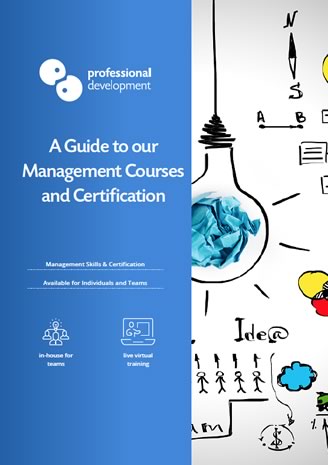As a manager, supervisor, or team leader, a large part of your role is supporting those you manage.
However, it is important to remember your own wellbeing and put in place supports for managing your stress levels.
Stress management is often very low down on a manager’s priority list. This short article aims to give you some helpful tips on how to incorporate stress management into your regular work schedule.
Stress Management: 6 Tips for Wellbeing in a Management Role
1. Talk to a Mentor or Peer
If you have a mentor or peer that you trust in a similar role, schedule some time to chat with them as often as possible.
Sharing your concerns and challenges with someone who has either been through or is going through a similar situation can be extremely reassuring.
It can also be an opportunity for finding solutions and new ideas.
2. Build a Toolkit
One of the ways to handle the busiest and most stressful times is to ensure you have a well-developed management toolkit.
Take a little time to review what your role requires and assess the skills and knowledge you have in that area.
Management training is an excellent way to bridge any gaps you find in your toolkit.
It has the added bonus of developing your confidence through practical learning and feedback from management experts as you learn.
3. Gain Confidence in Your Abilities
This one comes about through a combination of management training and experience.
As we mentioned above, attending training can really help to boost your own confidence as a manger.
It’s heartening to receive positive feedback from experts. Understanding tried-and-trusted management techniques gives you a reliable framework to fall back on in challenging situations.
As you gain experience in your role and navigate many different kinds of situations, your confidence will continue to grow.
4. Develop Resilience Skills
Challenging times will always arise. Leading others through radical change and uncertainty – such as we have encountered in the past few years – is no picnic.
To handle times like this successfully, you need to be resilient. There are very few people who naturally possess a strong set of resilience skills. Most of us have to work on it.
Our 1-day Resilience in the Workplace Course is designed to provide you with an awareness and capability for how to remain resilient in times of stress.
5. Ask for Help
When you feel overwhelmed, ask for support.
Whether that takes the form of requesting additional resources from your own manager, delegating some of your workload appropriately, or seeking professional support, asking for help is always a good choice.
Your own stress management at work is just as important as that of the people you manage. Don’t be afraid to ask for what you need.
6. Give Yourself a Break
Accept that you will make bad calls and mistakes. What’s more, don’t beat yourself up about it. There isn’t any leader who hasn’t taken mis-steps along the way.
The important thing to remember about mistakes is that it’s how we react and what we learn that matters.
When things don’t go as planned, take a breath and look at what you can learn from the situation.
Then let it go.
Spending hours or even days beating yourself up about a mistake is wasted energy. Funnel that energy into your next win or some self-care time.
Action Points
These 6 tips are just a starting point for your stress management and wellbeing at work action plan.
We recommend spending regular time refining your own action plan. You can start with the tips given above, but you’ll probably find over time that you add extra strategies for maintaining your optimum workplace wellbeing.
Here are 3 ways to ensure you follow through on managing your stress:
- Make an Appointment
Whether this is an appointment with the peer or mentor we mention above, or a time you set aside for self-reflection, looking after your workplace wellbeing deserves a dedicated time in your schedule.
- Check in Every Week
If you can make it every day, even better! It’s important to note that stress management is not a once off task.
Checking in with yourself regularly helps you to keep your stress levels at work on the lower side of the spectrum.
- Equip Yourself with Important Tools
We mentioned developing a management toolkit and resilience skills in our tips above. Here are two training options to get you there:
Benefits of Stress Management
Investing some time in taking care of your own stress levels will make you feel better and it will certainly make you a more effective leader.
You will have more energy for tackling challenges and supporting your team. What’s more, you’ll be setting a great example for those you manage.


